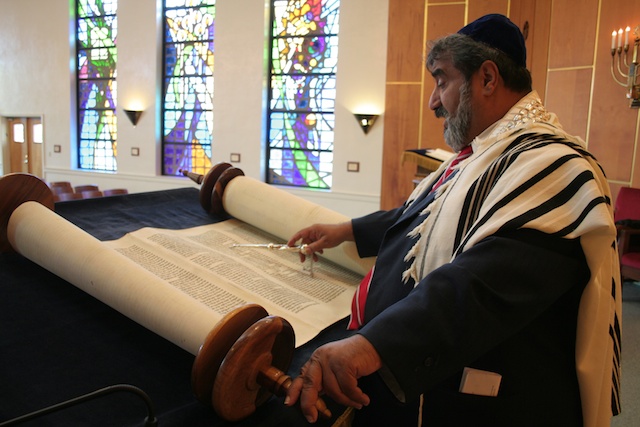In episode 1 of different ways religions view healing, we first discover how Judaism views healing. Much like the difference between traditional Catholicism and modern Christianity, we have the difference between traditional Orthodox Judaism and modern Reform Judaism. In Reform Judaism, they heal through prayer, both individually and as a congregation. “I also sensed that the request from his family and the outpouring of concern for this particular member made it a unique opportunity to introduce the prayer for healing to the congregation” (Reform Judaism). Praying in Reform Judaism represents meaningful support and is a way to combat the feeling of instability and helplessness, of which are often present during conflict or hard times.
This feeling of a community coming together through prayer is present in many other religions as well, just in different ways. To me, praying and connecting as a community seems similar to Reiki (Buddhism), because in a way the community is “harnessing” the power of their God and it is connecting both the person who is in pain, and the “healer” (in this case, God).
In Judaism, one of the specific prayers for the sick or those who are in recovery is called “Mi Shebeirach”, or “the One who blessed”. “It asks that the One who blessed our ancestors bring about a complete healing for the person for whom the blessing is said” (Woodbury Jewish Center). For anyone who is in need of healing, regardless of if it is spiritually or physically, this prayer is offered on Shabbat or during festivals. Shabbat is the Jewish “day of rest” happening “each week from sunset on Friday to sunset on Saturday” (Jewish Museum London). Shabbat is different for each Jewish community and differs from family to family. I connect Shabbat back to Christianity and Catholicism in that the Friday evening services (Exploring Judaism) are similar to the way that there are Sunday morning or Saturday evening services in Catholicism and Christianity.
Some Jews have been “seeking answers” to the question “What does it mean to trust God as healer?”. The Jewish community fundamentally believes that you find healing through seeing God as healer, and that he is the eternally designated healer of their community. “This verse [“where God declares: “I the Eternal am your healer”] is not a promise, but a warning that they should not be among (God’s) enemies[…] If they heed (God), they will escape from all these diseases that are liable to come upon those who cross (God’s) will . . . “. “This verse is not so much about God’s healing power, but of God’s omnipotence, capable of punishing or healing, creating or destroying”. This is sometimes considered a threat by Jewish Torah students, as it says “if they heed (God’s) will, they will escape from all these diseases that are liable to come upon those who cross (God’s) will”(Reform Judaism). Although this states that if you cross God’s will you will be plagued by diseases, it also says that if you heed God’s will, you will escape all of this pain. This can also be seen as a law to live by, a comfort to hold on to, something eternally withstanding, and something solid that is said to prevent terrible pain if only you follow this said law.
“Ibn Ezra sees God’s transformation of the bitter waters as an example of God’s miraculous wonders and of the divine reward that comes to those who devote themselves to God. Doctors heal through medicine and procedures; God’s healing comes from being in a covental relationship”(Reform Judaism). This perspective on healing interprets healing as a blessing, a reward, instead of healing as simply a removal of pain. Healing is defined as “the process of becoming well again, especially after a cut or other injury” (Cambridge Dictionary).
However, emotional healing is defined differently, as emotional healing is instead the acceptance of healing. “A process in which you accept all your painful life experiences and the negative emotional reaction generated from them. It means you have mastered the art of coping with various stressors” (The Pleasant Mind). This is similar to the idea that healing is a blessing and safety from God. It asks that you trust in God and build a relationship with him, even through pain, so that as a reward you will both be spared of terrible pain and you will be at peace with yourself. So, if in Judaism God can bless you as a result of you obeying his covenant and following his desires for the community he created, can this not be defined as emotional healing? For if you are joining this religion, are you not mastering the art of coping with the pain of the world by trusting in God and accepting all pain because of this trust?




